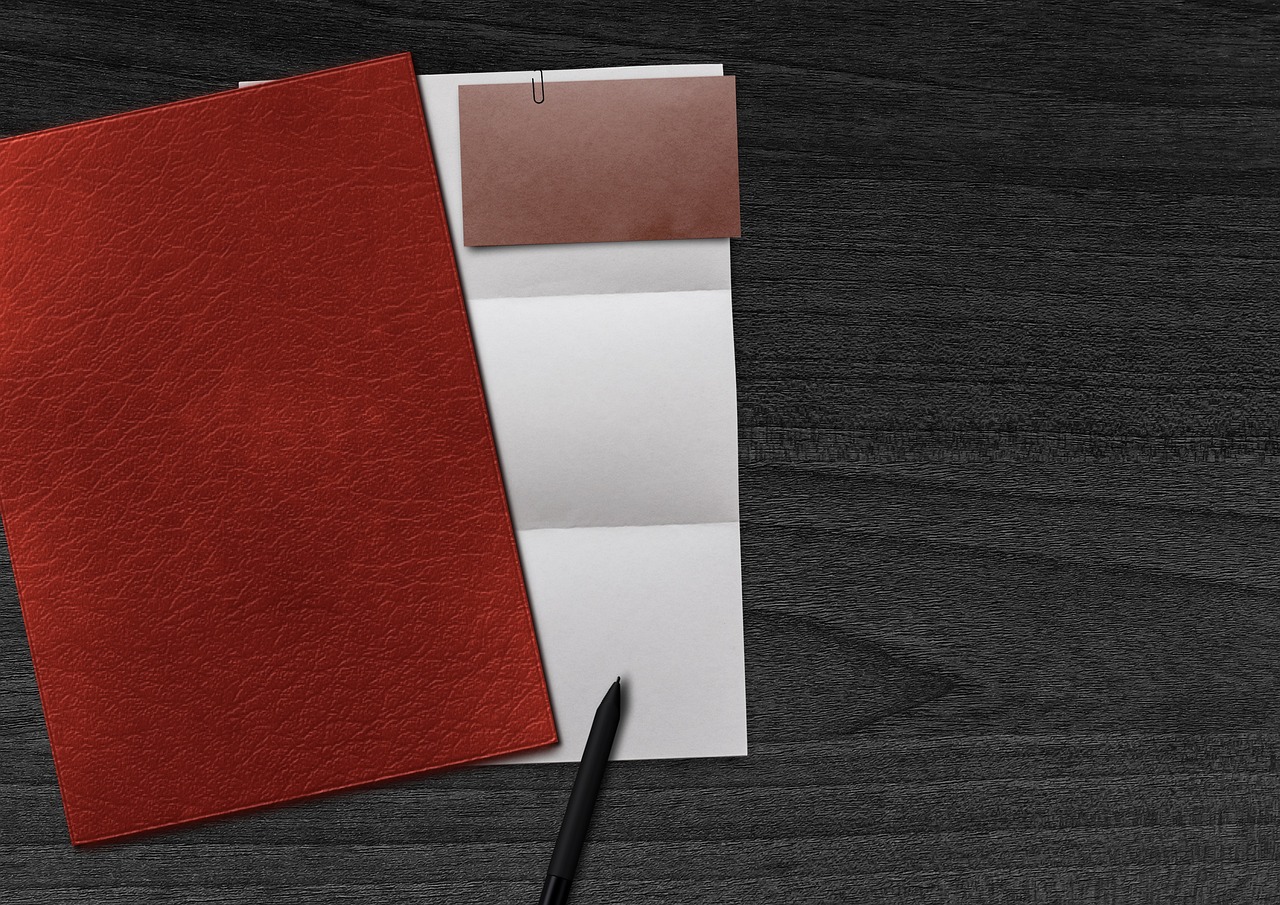10 Hacks for Staying Organized at Work
Are you tired of feeling overwhelmed at work and struggling to keep up with your tasks? Discover effective strategies to boost productivity and efficiency in the workplace through organization. These tips will help you manage tasks, prioritize responsibilities, and maintain a clutter-free work environment for optimal performance.
One of the most essential hacks for staying organized at work is to create a daily to-do list. By starting your day outlining tasks and deadlines, you can stay on track and focused. Prioritize important tasks and check them off as you complete them for a sense of accomplishment.
To enhance your organizational skills, utilize digital tools such as productivity apps and software. Explore tools like calendars, project management platforms, and note-taking apps to streamline communication, project management, and task tracking.
Keeping your workspace clutter-free is crucial for maintaining focus. Declutter your workspace by clearing your desk of unnecessary items and organizing essential supplies for easy access. A clean workspace can help reduce distractions and improve concentration on tasks at hand.
Establishing routine cleaning times is another effective hack for staying organized. Set aside regular intervals to tidy up your workspace, including filing documents, clearing out emails, and organizing digital files. Maintaining a clean and organized environment can significantly boost productivity.
Effective time management is key to staying organized at work. Implement techniques like the Pomodoro Technique or time blocking to structure your workday efficiently. Break tasks into manageable intervals and schedule focused work periods with short breaks in between to stay productive.
Recognize when to delegate tasks to colleagues or team members to lighten your workload. Effective delegation can help you focus on high-priority assignments and improve overall productivity.
Clear and organized communication channels are essential for staying organized at work. Ensure that communication with colleagues is seamless by utilizing tools like email filters, project management platforms, and shared calendars to avoid misunderstandings and delays.
Setting realistic goals and deadlines is crucial for effective organization. Define achievable goals and set realistic deadlines to manage expectations and prioritize tasks effectively. Breaking down larger projects into smaller milestones can help you stay on track and organized.
Periodically reflecting on and adjusting your organization strategies is key to long-term success. Review your methods, identify areas for improvement, and adjust your strategies to optimize productivity and maintain organization in the long run.

Create a Daily To-Do List
Discover effective strategies to boost productivity and efficiency in the workplace through organization. These tips will help you manage tasks, prioritize responsibilities, and maintain a clutter-free work environment for optimal performance.
Starting your day with a clear plan is essential for staying organized and focused. By creating a daily to-do list, you can outline your tasks and deadlines, ensuring that you stay on track throughout the day. Prioritize your important tasks and enjoy the satisfaction of checking them off as you complete them, boosting your sense of accomplishment.

Utilize Digital Tools
Discover effective strategies to boost productivity and efficiency in the workplace through organization. These tips will help you manage tasks, prioritize responsibilities, and maintain a clutter-free work environment for optimal performance.
Start your day by outlining tasks and deadlines to stay on track and focused. Prioritize important tasks and check them off as you complete them for a sense of accomplishment.
Embracing digital tools can revolutionize how you work. By utilizing productivity apps and software, you can streamline communication, project management, and task tracking. Calendars, project management platforms, and note-taking apps are just a few examples of tools that can enhance your organizational skills and efficiency.
Clear your desk of unnecessary items and organize essential supplies for easy access. A clean workspace can help reduce distractions and improve concentration on tasks at hand.
Set aside regular intervals to tidy up your workspace, including filing documents, clearing out emails, and organizing digital files. Maintaining a clean and organized environment can boost productivity.
Adopt strategies like the Pomodoro Technique or time blocking to structure your workday efficiently. Break tasks into manageable intervals and schedule focused work periods with short breaks in between.
Recognize when to delegate tasks to colleagues or team members to lighten your workload. Effective delegation can help you focus on high-priority assignments and improve overall productivity.
Ensure that communication channels with colleagues are clear and organized to avoid misunderstandings and delays. Utilize tools like email filters, project management platforms, and shared calendars for effective communication.
Define achievable goals and set realistic deadlines to manage expectations and prioritize tasks effectively. Breaking down larger projects into smaller milestones can help you stay on track and organized.
Periodically review your organization methods and assess their effectiveness. Identify areas for improvement and adjust your strategies to optimize productivity and maintain long-term organization.
Stay tuned for answers to common queries about staying organized at work.

Declutter Your Workspace
When it comes to boosting productivity and maintaining focus at work, decluttering your workspace plays a crucial role. Imagine your workspace as a canvas where your creativity and efficiency can flourish. By clearing your desk of unnecessary items and organizing essential supplies, you create a harmonious environment that fosters productivity.
A clutter-free workspace not only enhances visual appeal but also reduces distractions, allowing you to concentrate better on your tasks. Just like a cluttered room can make it hard to find things, a cluttered workspace can make it challenging to focus on your work. Keep only the items you need within arm's reach and store the rest neatly out of sight.
Consider implementing a minimalist approach to your workspace organization. Utilize storage solutions like shelves, drawers, and organizers to keep everything in its place. A well-organized workspace not only improves efficiency but also gives a sense of control and order, boosting your overall work satisfaction.
Take a few minutes each day to tidy up your workspace, putting things back in their designated spots. This daily ritual can prevent clutter from piling up and maintain a clean, organized environment. Just like tidying up your room before going to bed can give you a fresh start the next day, decluttering your workspace sets the stage for a productive workday.
Remember, a cluttered workspace can lead to a cluttered mind. By decluttering your workspace and creating an organized environment, you set yourself up for success and efficiency. So, take the time to declutter, organize, and create a workspace that inspires productivity and creativity.

Establish Routine Cleaning Times
Creating a routine for cleaning your workspace can significantly impact your productivity and overall work environment. Just like how a gardener tends to their garden regularly to ensure it thrives, setting aside specific times for cleaning and organizing can help cultivate a more efficient workspace.
Imagine your workspace as a canvas, and each cleaning session is like adding a new layer of paint to create a masterpiece. By establishing routine cleaning times, you prevent clutter from accumulating, making it easier to find what you need when you need it.
Consider creating a cleaning schedule that aligns with your natural energy levels throughout the day. For example, if you tend to feel more energetic in the morning, allocate time before or after lunch to tidy up your desk and digital files.
Furthermore, routine cleaning times can serve as mental breaks during your workday. Just like taking a deep breath of fresh air rejuvenates your body, stepping away from your tasks to declutter and organize can refresh your mind and enhance focus.
Implementing a "clean as you go" approach can also be beneficial. Similar to how a chef cleans up spills and organizes ingredients while cooking, tidying up small messes and organizing documents as you work can prevent a chaotic workspace from forming.
Ultimately, establishing routine cleaning times is not just about maintaining a tidy workspace; it's about creating a harmonious environment that fosters creativity, efficiency, and a sense of control over your workday.

Implement Time Management Techniques
Implementing time management techniques is crucial for maximizing productivity and efficiency in the workplace. By structuring your workday effectively, you can accomplish tasks more efficiently and avoid feeling overwhelmed. One popular technique is the Pomodoro Technique, which involves working in focused intervals followed by short breaks. This method helps maintain concentration and prevent burnout. Additionally, time blocking is another effective strategy where you allocate specific time blocks for different tasks or projects. This approach allows you to prioritize your workload and manage your time more effectively.

Delegate Tasks When Possible
Delegating tasks is a crucial skill in maintaining organization and efficiency at work. When you recognize that certain tasks can be handled by others, it not only lightens your workload but also allows you to focus on high-priority assignments. Effective delegation involves understanding the strengths and capabilities of your colleagues or team members, assigning tasks accordingly, and providing clear instructions and expectations.
By delegating tasks, you can leverage the expertise of others and promote collaboration within the team. It is essential to communicate effectively when delegating, ensuring that the delegated tasks align with the overall goals and objectives of the project or assignment. Regularly follow up on delegated tasks to track progress and provide support when needed.
Delegation is not about offloading work but about strategic distribution to maximize productivity and achieve collective success. It empowers team members, fosters a sense of responsibility, and promotes a culture of trust and collaboration within the workplace. Effective delegation can lead to improved efficiency, better time management, and overall organizational success.

Establish Clear Communication Channels
When it comes to navigating the complex web of workplace interactions, establishing clear communication channels is paramount. Imagine communication channels as the veins that carry vital information throughout the body of your organization. Just like a well-functioning circulatory system ensures the body's health, clear communication channels facilitate smooth and efficient information flow within your workplace ecosystem.
One effective way to establish clear communication channels is by utilizing digital tools that promote transparency and accessibility. Consider implementing project management platforms that allow team members to collaborate seamlessly, share updates, and track progress in real-time. By centralizing communication through these tools, you can avoid the chaos of scattered messages and ensure that everyone is on the same page.
Another crucial aspect of fostering clear communication channels is setting guidelines and protocols for internal communication. Just as traffic signs and signals keep the flow of vehicles organized on the road, establishing communication protocols can prevent misunderstandings and delays in information exchange. Clearly define the preferred methods of communication for different types of messages, whether it's through email, instant messaging, or face-to-face meetings.
Moreover, creating a culture of open communication within your team can significantly enhance the clarity of your channels. Encourage feedback, questions, and constructive discussions to ensure that information is shared openly and transparently. Just like a well-tended garden thrives on sunlight and water, a workplace that values open communication flourishes with creativity, collaboration, and innovation.
Lastly, regular communication audits can help you evaluate the effectiveness of your established channels and identify areas for improvement. Think of it as a routine check-up for your organization's communication health. By gathering feedback from team members, analyzing communication patterns, and making necessary adjustments, you can fine-tune your channels to operate at peak efficiency.

Set Realistic Goals and Deadlines
Setting realistic goals and deadlines is a crucial aspect of staying organized at work. By defining achievable objectives and establishing reasonable timeframes, individuals can effectively manage their workload and prioritize tasks. When setting goals, it is essential to consider the scope of the project, available resources, and potential obstacles that may arise.
One effective strategy is to break down larger projects into smaller, more manageable milestones. This approach not only helps in tracking progress but also allows for a more structured and organized workflow. By setting incremental goals, individuals can maintain focus and motivation throughout the project.
Moreover, realistic deadlines play a significant role in ensuring timely completion of tasks. It is important to assess the complexity of the task, allocate sufficient time for each stage of the project, and account for unexpected delays. By setting deadlines that are both challenging yet attainable, individuals can avoid procrastination and maintain a sense of urgency.
Additionally, communicating deadlines with team members and stakeholders is essential for collaboration and coordination. Clear and transparent communication regarding project timelines can help in aligning expectations and ensuring everyone is on the same page. By involving relevant parties in the goal-setting process, individuals can foster a sense of accountability and shared responsibility.
In conclusion, setting realistic goals and deadlines is a fundamental strategy for enhancing productivity and organization in the workplace. By establishing clear objectives, breaking down tasks into manageable steps, and communicating effectively with colleagues, individuals can optimize their performance and achieve success in their endeavors.

Reflect and Adjust Your Organization Strategies
Reflecting on and adjusting your organization strategies is crucial for maintaining efficiency and productivity in the workplace. By regularly evaluating your methods and making necessary changes, you can ensure that you are working at your optimal level. One effective way to do this is by setting aside time to analyze your current organization techniques and identify areas that may need improvement.
Consider creating a table to compare different strategies you have implemented and their respective outcomes. This visual representation can help you easily pinpoint which methods are working well and which ones may need adjustment. By doing so, you can adapt your organization strategies to better suit your workflow and goals.
Additionally, seeking feedback from colleagues or supervisors can provide valuable insights into areas where your organization strategies may be falling short. Constructive criticism and suggestions for improvement can help you refine your approach and make necessary adjustments to enhance your overall organization.
Remember that organization is not a one-size-fits-all solution, and what works for one person may not work for another. Therefore, it's essential to be flexible and open to trying new methods to find what works best for you. Embrace experimentation and be willing to adapt your strategies based on feedback and results.
Ultimately, the key to staying organized at work is continuous evaluation and adjustment of your organization strategies. By reflecting on your methods, seeking feedback, and remaining open to change, you can optimize your productivity and efficiency in the workplace.
Frequently Asked Questions
- How can creating a daily to-do list help me stay organized at work?
Creating a daily to-do list allows you to prioritize tasks, stay focused, and track your progress throughout the day. It helps you manage your time effectively and ensures that important tasks are completed on time.
- What are some popular digital tools that can enhance workplace organization?
Popular digital tools include project management platforms like Trello, communication tools like Slack, and note-taking apps like Evernote. These tools can streamline communication, task management, and collaboration among team members.
- Why is decluttering your workspace important for productivity?
Decluttering your workspace can reduce distractions, improve focus, and create a more conducive environment for work. A clean and organized workspace can help you work more efficiently and stay on top of tasks.
- How can time management techniques like the Pomodoro Technique improve productivity?
The Pomodoro Technique involves working in focused intervals with short breaks in between. This method can help you maintain concentration, avoid burnout, and make better use of your time by breaking tasks into manageable chunks.
- Why is it beneficial to delegate tasks in the workplace?
Delegating tasks can help distribute work evenly, free up time for more important responsibilities, and improve overall productivity. It allows team members to focus on their strengths and contribute effectively to the team's goals.



















